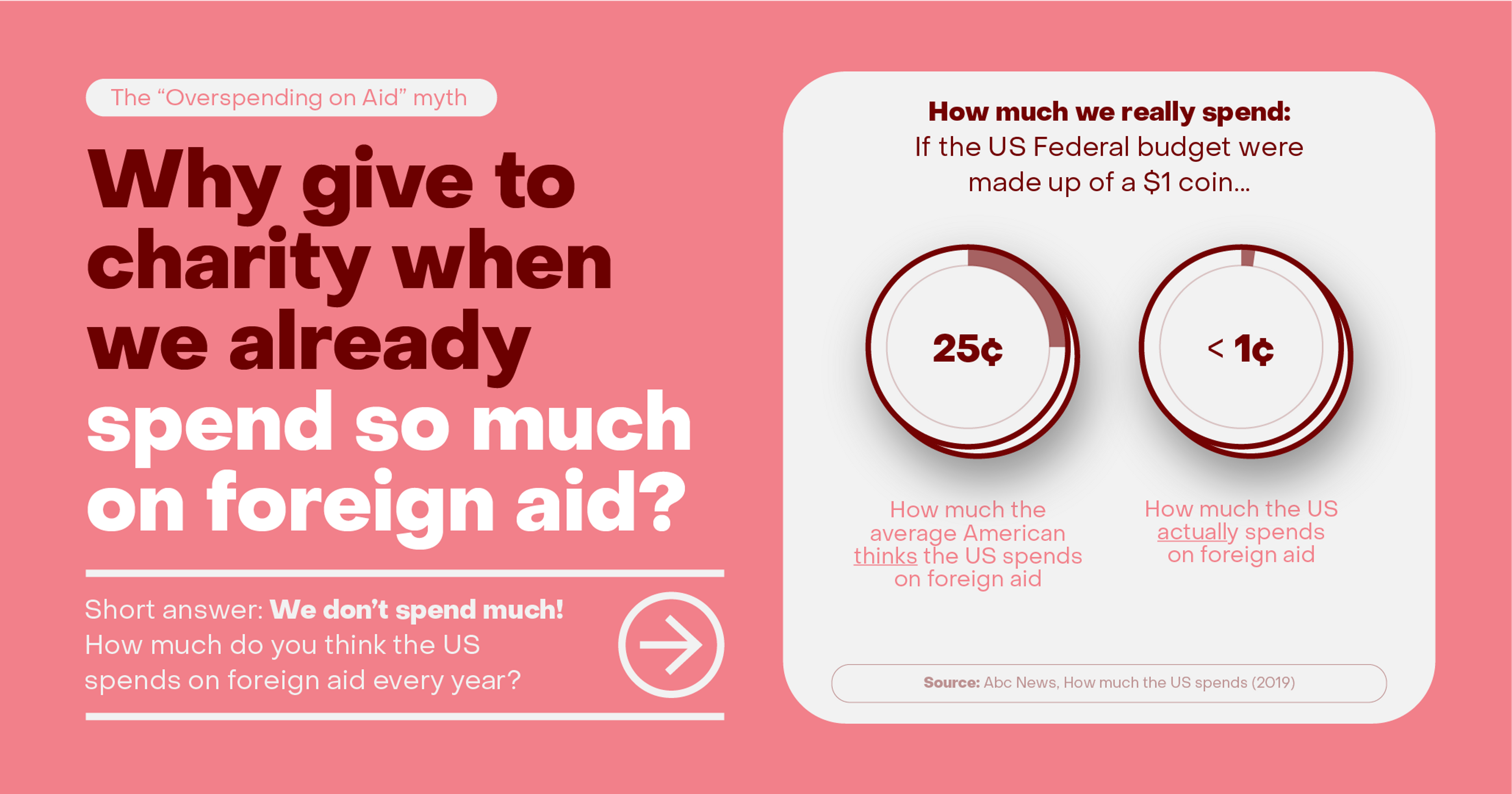This article is part of a series addressing common concerns about charitable giving.
Don't we spend too much on foreign aid already?
In 2016, 30 of the largest providers of foreign aid (a group known as the Development Assistance Committee) gave a total of $142.6 billion, a sum so large that it is difficult to truly comprehend.
Yet, while it's no doubt a large number, it is only 0.32% of the combined national income of those countries --- that's three dollars in aid out of every thousand. The amount that wealthy countries spend on foreign aid is generally just a tiny fraction of their budgets.
Many people don't donate to international aid charities because they believe that their governments already spend too much on foreign aid. For example, when asked what percentage of the U.S. federal budget is spent on foreign aid, Americans' guesses hover around 25%, with a more recent poll reporting as much as 31% on average.
As it turns out, U.S. foreign aid spending is only about 1% of the federal budget. That's less than 1/25 of what Americans believe, and only about 1/10 of what the same Americans believe would be an "appropriate" amount.
In contrast to the 1% of its budget that the U.S. spends on foreign aid, it spends nearly 16% of its budget on national defence and about 24% on Medicare and Medicaid.

Per citizen, the U.S. government gives about $89 in foreign aid. Oxfam points out that $89 is less than the average American spends on candy ($107), sporting goods ($209), or jewellery ($212).
Meanwhile, private Americans, foundations, and corporations gave about $23 billion to support international affairs in one recent year. Again, that's an astoundingly large number, but it's only about 5% of the $418 billion that Americans donated to charity that year.
As Bill Nye points out in the video below, the public misconception of the amount we spend on foreign aid could lead us to neglect important opportunities for helping others. For instance, there's a lot more that wealthy countries could be doing to prevent leading causes of death, like communicable diseases, birth problems, and poor nutrition:
There is a lot of work that still needs to be done in low-income countries, and those of us in wealthier countries have an opportunity to make a huge impact at little cost. You can help improve --- and even save --- lives by donating to one of many highly effective organisations working to support health and promote economic empowerment throughout the world.
Consider making a giving pledge and joining our worldwide community of like-minded people who are working to make the world a better place.
This post is part of our Common Concerns About Donating to Charity page. Multiple authors contributed.
But is that argument well-supported? Read the full post here:
🔗https://t.co/t52DCNsLAk pic.twitter.com/7ydiIx8SRj
— Giving What We Can (@givingwhatwecan) September 14, 2021